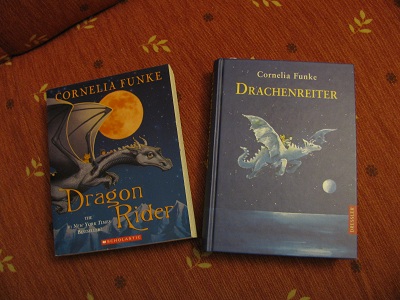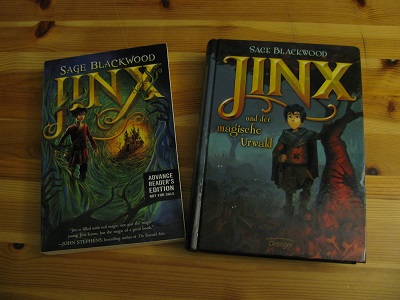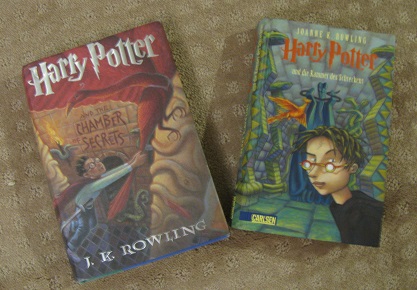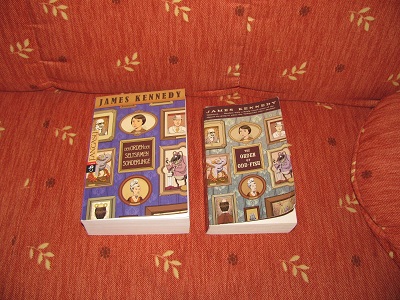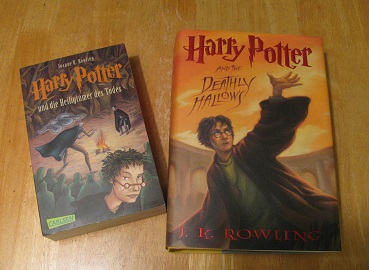Sonderling Sunday — Drachenreiter — A Meeting in the Rain
It’s time for Sonderling Sunday! That time of the week when I play with language by looking at the German translation of children’s books, or, in this case, the English translation of a German children’s book.
This week, we’re looking at Drachenreiter, by Cornelia Funke, known in English as Dragon Rider.
It’s been a few years since I looked at Drachenreiter. We are ready to begin with Chapter Two, Versammlung im Regen, “A Meeting in the Rain.” This is Seite 14 auf Deutsch, page 7 in English.
We’ll start with the name of a dragon:
Schieferbart = “Slatebeard”
I like the way this sentence sounds:
Seine Schuppen schimmerten schon lange nicht mehr = “His scales no longer glowed”
aber Feuer speien konnte er noch = “but he could still breathe fire”
(“but fire spewing could he still”)
nicht weiterwussten = “at a loss” (“not further-knew”)
Missmutig = “gloomily”
Feuchtigkeit = “damp”
Gelenke = “joints”
wichen = “made way” (“evaded”)
Schwefelfell = “Sorrel”
Kobold = “brownie”
scheifendem Schwanz = “dragging tail”
Schnaufend stieg = “Breathing hard”
verscheuchen = “deal with it” (“scare away”)
flink = “nimbly”
Rascheln = “rustling”
knabberte = “nibbling”
belauschen = “eavesdrop”
Barthaar = “whisker” (“beard-hair”)
überschwemmt = “flooded”
spöttisch = “sarcastically”
rümpfte = “wrinkled”
Hohlkopf! = “dimwit!” (“hollow-head!”)
schmilzt = “melts”
Verflixt! = “Oh, drat it!”
Das war töricht. = “It was a foolish hope.”
Der Saum des Himmels = “The Rim of Heaven
Hängen = “slopes”
Bergkuppen = “mountaintops”
fröstelnd = “shivering”
Blödsinn = “nonsense”
strömenden Regen = “pouring rain”
stapfte = “trudged”
Da platzte Schwefelfell der Kragen.
= “This was too much for Sorrel.”
(“There burst Sorrel her collar.”)
hinter den Ohren kraulen = “scratch you behind the ears” (“behind the ears fondle”)
I like this one. I’ve heard people speak schnippisch.
schnippisch = “sharply”
Keulenfüßigen Trichterling = “Tedious toadstools”
meckern = “complain”
And the last sentence of the chapter:
Bestimmt nicht genug, um dich mit dieser holzköpfigen Pilzfresserin zu Ende zu streiten.
= “Certainly not enough time to finish your quarrel with this dim-witted mushroom-muncher.”
(“Certainly not enough, for you with this wooden-headed mushroom-devourer to end to argue.”)
And that’s all for tonight! Please try not to call anyone a holzköpfigen Pilzfresserin this week!
Bis bald!
